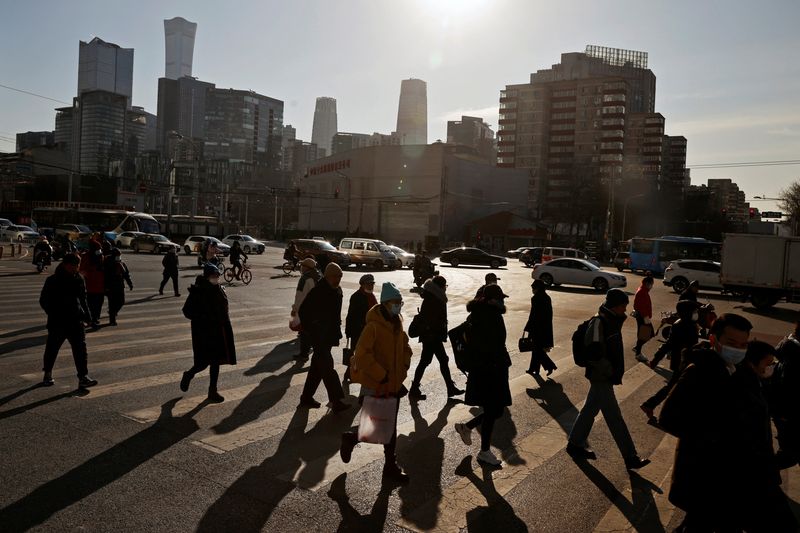BEIJING (Reuters) - China will extend some favourable income tax policies to ease the burden for middle- and low-income groups, state media said on Wednesday, quoting a cabinet meeting chaired by Premier Li Keqiang.
The measure is expected to cut taxes by 110 billion yuan ($17.3 billion) a year, the cabinet was quoted as saying.
China will further cut taxes and fees next year to support struggling businesses, the finance ministry said on Monday, echoing pledges from the annual Central Economic Work Conference held earlier this month, an agenda-setting meeting of the country's top leaders.
Preferred tax policies on annual bonuses will be extended until the end of 2023, while favourable tax policies on equity-based incentives will stay in place until the end of next year, the cabinet was quoted as saying.
The world's second-largest economy, which has lost steam after a solid recovery from the pandemic last year, faces multiple challenges as a property downturn deepens, supply bottlenecks persist and strict COVID-19 curbs hit consumer spending.

To stabilise economic growth, China will roll out fiscal policies proactively next year, and make infrastructure investments "appropriately" ahead of time, finance ministry said on Monday.
($1 = 6.3651 Chinese yuan renminbi)
